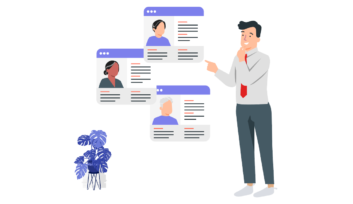
Facebook/Instagram Campaigns: How California’s Data Compliance Affects Ad Performance
Think new laws don’t affect you because your business is located somewhere else? Think again.
Because the truth is, new laws change the way things work online, especially if your consumers are affected by them. Take California’s new law for example.
The California Consumer Privacy Act (CCPA) went into effect on January 1, 2020 but enforcement began on July 1 of this year.
So what is CCPA exactly?
It’s a new law designed to protect the data privacy rights of those living in the state of California. Basically, this law forces companies to provide more information to consumers about what’s happening with their data.
Should you care about CCPA?
Let’s break things down and find out.
The CCPA applies to all types of for-profit businesses (from sole proprietorships to corporations) that meet at least one of three criteria:
- Your business has gross revenues in excess of $25 million.
- Your business annually buys, receives, sells, or shares personal information of 50,000 or more California residents.
- Your business derives 50% or more of its annual revenues from selling California residents’ personal information.
So it looks like CCPA may not affect small businesses, but . . .
If your business collects data or personal information from 50,000 or more people living in California, then CCPA does, in fact, affect you (whether or not you have a U.S. or foreign business).
The data collection includes details like: names, addresses, social security numbers, driver’s license numbers, IP addresses, purchasing or consuming histories, browsing history, and information regarding a consumer’s interaction with a website.
So say if 135 Californians visit your website every day for a year, then you need to be aware of the potential fines you could rack up (up to $7,500 per record) if you ignore this new law.
The CCPA gives consumers the right to know how their data is being used. And a right to access, or opt-out of having their data sold to third parties.
Scary stuff, right? But as long as this is on your radar, and you’re looking into it, you shouldn’t have anything to worry about.
Except, if you’ve noticed a sharp decline in your Facebook ad results from ‘The Golden State.’
And if you have seen a drop, you’re not alone.
Let’s look at some examples:
This is an ad account promoting women’s waist trainers. Let’s loot at the data before July 1st (and before CCPA was enforced).
From June 15 – June 30, the amount spent is $1,292.72, ROAS is 2.51.

Now let’s look at the data after July 1st (when CCPA was fully enforced).
From July 1 – 15, the amount spent is $285.24, ROAS is 1.45.

So when comparing the total ad spend ($22,461.20 vs. $17,088.77), we get a massive difference for California.
Facebook spent 4.5 times less than it did in the previous period. ROAS dropped significantly too. Why? Facebook didn’t let running ads retarget California users.
Now here’s the data after the owner of the women’s waist trainers confirmed that her business isn’t subject to CCPA (and we enabled full data use).
From July 1 – 15, the amount spent is $6,553.92, ROAS is 2.91.

Obviously after looking at these numbers and enabling all the data, Facebook started spending more on California.
Here’s another example for an ad account promoting women’s t-shirts and tanks.
This time we enabled full data use on July 10, so we’re going to compare different time periods.
From June 21 – 30, the amount spent is $2,116.43, ROAS is 2.74.

From July 1 – 10, the amount spent is $513.99, ROAS is 1.59.

From July 11 – 20, the amount spent is $10,716.53, ROAS is 2.43.

This all went down starting July 1. And we’ve seen the same situation for all of our ad accounts.
So moving forward, if you’re selling and advertising online, the reality is that CCPA may affect your business too.
And in order to avoid potential ad problems or hefty fines, businesses need to assess whether or not CCPA applies. If it does, protect yourself and your business—make sure you’re compliant.
If your business isn’t subject to CCPA, double thumbs up for you!
Now you’ve got to enable all that data as soon as possible.
Because Facebook’s Limited Data Use and data processing options (which limits the way user data is stored and processed for California residents), could have a huge effect on your ad performance, especially if you’re relying on a Cali audience.
And if the CCPA applies to your business, yet you still want to fully use FB ads that target California? Then the next step is to implement targeting and custom event tracking.
How? By customizing and updating the code for your Facebook pixel and making all the necessary website changes.
Sound like a minefield and don’t want to manage this yourself? Not sure where to start? We get it. That’s why we do the work for you.
Reach out to our AdTribe team and let’s start a conversation about your compliance and targeting needs.
Disclaimer: We are not lawyers and cannot provide legal advice. This is our interpretation of the new CCPA law information that has been made available online.


